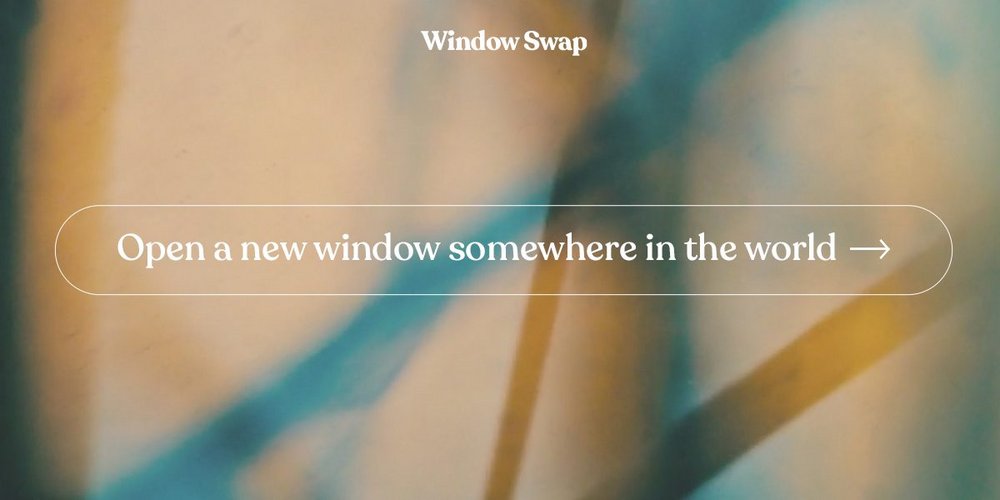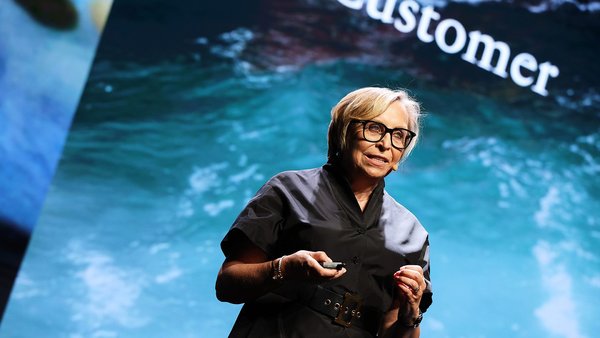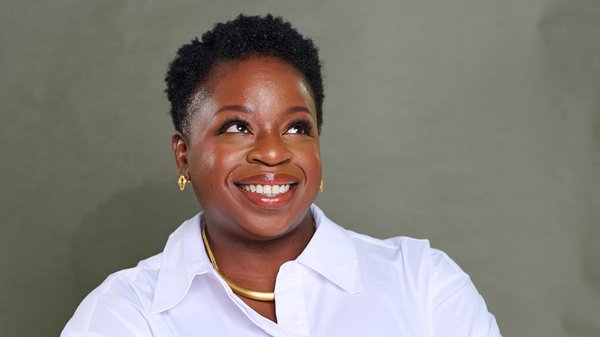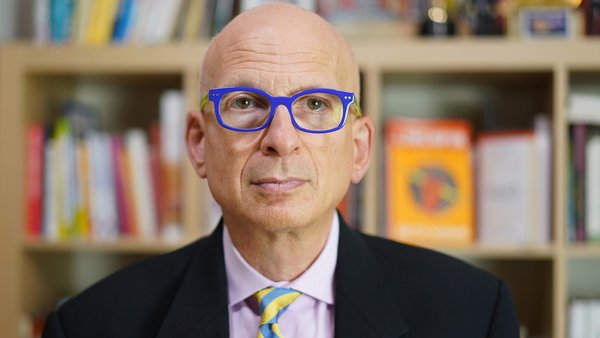Bogdana Butnar’s Strategy Diet /
Contagious asks top advertising strategists about their media consumption and research habits
James Swift
/
Photo by Ant Rozetsky on Unsplash
Have you ever wanted to know what the ad industry’s sharpest strategists feed their brains on a daily basis, or what resources they swear by when tackling a brief?
We have. So we’re asking.
Bogdana Butnar is a digital strategist and senior manager at Accenture, where she spends a lot of time thinking about brand experience and customer journeys. Bogdana has almost two decades of industry experience, with expertise in product and service design, and was previously head of strategy at Poke. Before that she worked at Google. Bogdana believes that the internet is going to save the world. She blogs here.
What media do you consume that makes you better at your job or helps you think about strategy generally?
I think everything I read, even politics, makes me think about strategy. But my ritual for the past two years has been to read everything Faris Yakob shares on Twitter and take it from there. He’s an incredibly astute curator of things that are relevant to people in the strategy trade, so I’ve made him my primary source.
I also read Benedict Evans’ newsletter and follow a handful of publications on Medium. I subscribe to The Atlantic and the Guardian and follow their business and technology sections. But mostly I like to rely on searching for things that interest me. I find that it’s very easy to fall into a routine of algorithms serving you what they think you’re interested in, so it’s best to try to extract yourself from that and make a proactive effort to decide your own agenda.
Are there any resources that you typically turn to first when working on a brief?
Yes, I always go to Mumsnet, a famous forum here in the UK, and search things related to the topic I am working on. And it’s never failed me. Women there tend to have an opinion about pretty much anything and, through sheer power of common sense, what they discuss can form a solid foundation for further research. I do the same with Medium, I’ve found that there’s a lot of people covering a lot of topics and the accumulated points of view reveal things I might have not thought about. These two then go into a sort of mind map, which I further construct through ‘proper’ research, primary stuff, native language analysis etc.
Who is someone that you follow/read/watch for their opinions and ideas?
I’ve already said I follow Faris Yakob as the quintessential curator of strategic thought. I also follow Benedict Evans and Scott Galloway because they, for me, represent the two extremes of tech commentary. Ann Hadley from MarketingProfs is another person I like because her feed is always very professional and value-adding.
On Medium I follow certain organisations like Ideo and I also subscribe to a few Substacks but those are less about my job and more about general inspiration. I am known, however, for my very quirky approach to content consumption so I don’t know how much this could work for other people. I only follow between 20 and 25 people on Twitter at any one time and have a tendency to change the ‘roster’ often, if I find that someone skews my feed too much. So I guess my influences change because I take a very active approach to managing the people who ‘curate’ my intellectual reality.
Bogdana Butnar
Is there anyone or any resource that you think strategists rely on too much that is counterproductive?
I can’t think of any resource that could be counterproductive, really, if it’s part of a balanced ‘diet’. I find single mindedness to be the dangerous one. If you’re only reading one thing or using one type of source of research, that becomes problematic for me.
As strategists, we are expected to be over informed, I think, because that provides a sort of mental elasticity, you’re able to jump among conceptual frameworks and understand more points of view. So I’ll take over-information any day. But sticking to one way of finding information or following someone blindly and agreeing only with points of view that confirm yours is how one gets into trouble. So my approach is always to try to go wherever I feel there are more points of view available, read more, ask more questions.
The one thing I sometimes find counterproductive is advertising festival libraries. I hate it when someone uses a past successful case study as a reason to do anything. The coordinates are never the same and that’s not how strategy gets made.
What do you think is the most underused resource for better strategy?
I hate saying this but I still find that people use business intelligence way less than they should. Nothing is more revelatory of what your strategy should be about than a company’s hard, market data. How big’s the market, how much share do you have, how much share do competitors have, how much are you spending on marketing, vs what they’re spending, etc.
I know people say there’s not enough ‘real people contact’, but I’m a digital strategist at heart, and I think if you hang out online, join forums, are passionate about netnography, you can get a feel of what real people have to say. But all of that does not give you the full picture. People sometimes put their money not where their mouth is, which is why share of online conversation, much like Les Binet remarked recently in a Contagious article, is not always a good indicator of share of market. So you have to be able to combine the two views: what people are saying, vs what they’re doing.
Is there anywhere you go when you’re struggling with a brief or a place that seems to help you work or think?
Well, I used to get on a bus and just ride around before the pandemic hit. The bus or the tube and just look at people. What they’re wearing, what they’re reading. I’m ashamed to say I sometimes peek at their phone screens just to see what apps they’re using and how.
It’s well known that for neurons to fire in creative ways you need to take ‘the action’ from the frontal lobes into the middle or back of the brain. So you need to stop actively trying to have ideas and just let the information flood the synapses and see what forms. I found the bus to be a perfect place for this. It immerses you into the actual world of the people you are supposed to build strategies for and you realise how much they engage with things. Plus the hum of traffic from inside a bus works like white noise for me.

Office etiquette: musicor no music?
Music. Good music. Not too loud. I won’t be doing any significant thinking if Britney Spears is blaring from the speakers.
What’s the best free resource for a strategist?
Mumsnet :)
What sort of media/resources would you recommend to someone just starting their career as a strategist?
Read the books first. I know the idea is you’re young and you have no money but if you can afford to drink three lattes in central London you can afford to buy some of the foundational books on strategy and those will really shape the way you think about everything moving forward. So make a list of the quintessential reads and just get through those.
Steel, Baskin, Ries & Trout, Sullivan & Bennett, Ogilvy and of course Sharp. I think that should give you the coordinates of what the job is about and then if you’re looking to read more about what people today are doing to shape the trade of strategy, then follow some people’s blogs or medium feeds and see what they read. I mean, honestly, just googling “best books for advertising” will get you some decent lists and, to my mind, if the book turns up on more than three or four lists it’s a classic and you need to read it.

What’s something that happened in pop culture that showed a better understanding of people than advertising?
Maybe I’m not getting this question because I’d think anything that’s happened in pop culture constantly shows a better understanding of people than advertising in general. With the risk of appearing a contrarian to my own ‘sector’, I find that often we do operate out of our ivory towers and that shows in the end product.
I can think of countless things that showed more empathy to how people live and behave but this week I’m fascinated by Window Swap, which I find at the same time therapeutic and incredibly topical to the kinds of lives we live today and probably the best example of experience building I’ve seen recently.
If you're looking for insights to super-charge a pitch, competitor analysis for a client meeting or the best case studies for an important keynote, the Contagious team can help you out.
Contagious on Demand is a bespoke service (with an average NPS of 9.3) that lets you ask our team of editors and strategists (just about) any question. Simply fill out the form here, detailing your request, and we'll get back to you with inspiration, insight and advice in as little as 48 hours.
Want more of the same? /
We don’t just write about best-in-class campaigns, interviews and trends. Our Members also receive access to briefings, online training, webinars, live events and much more.







